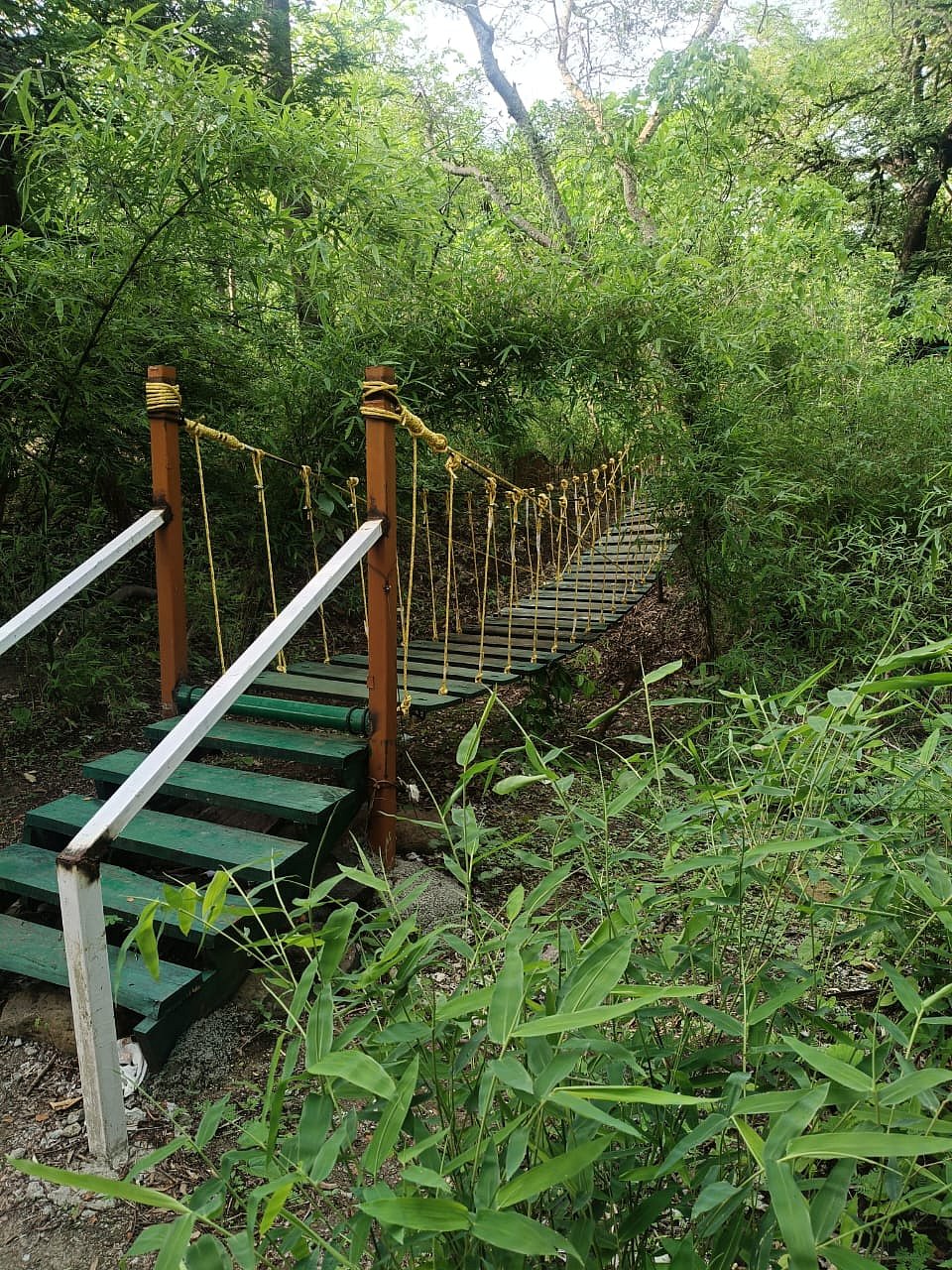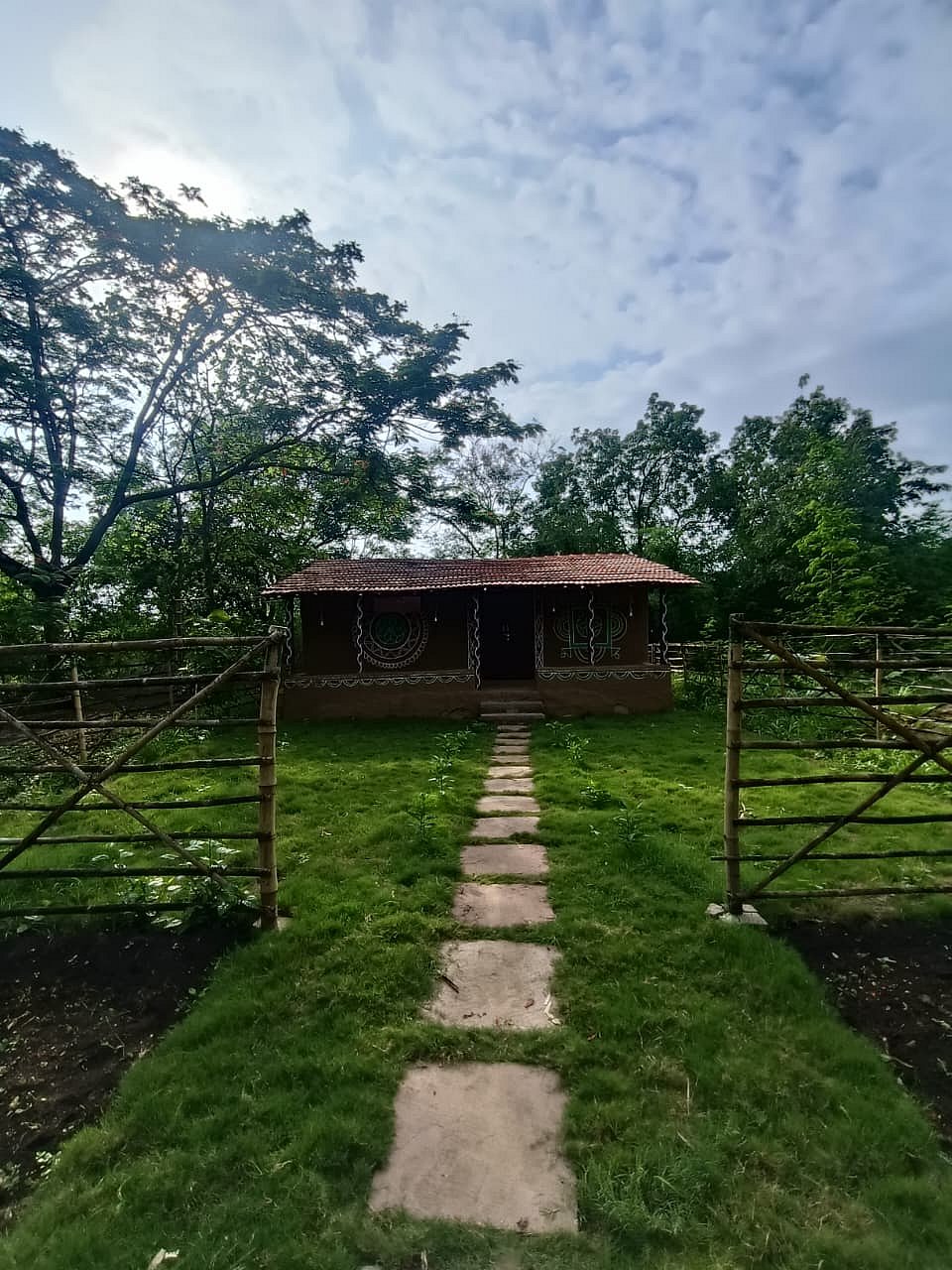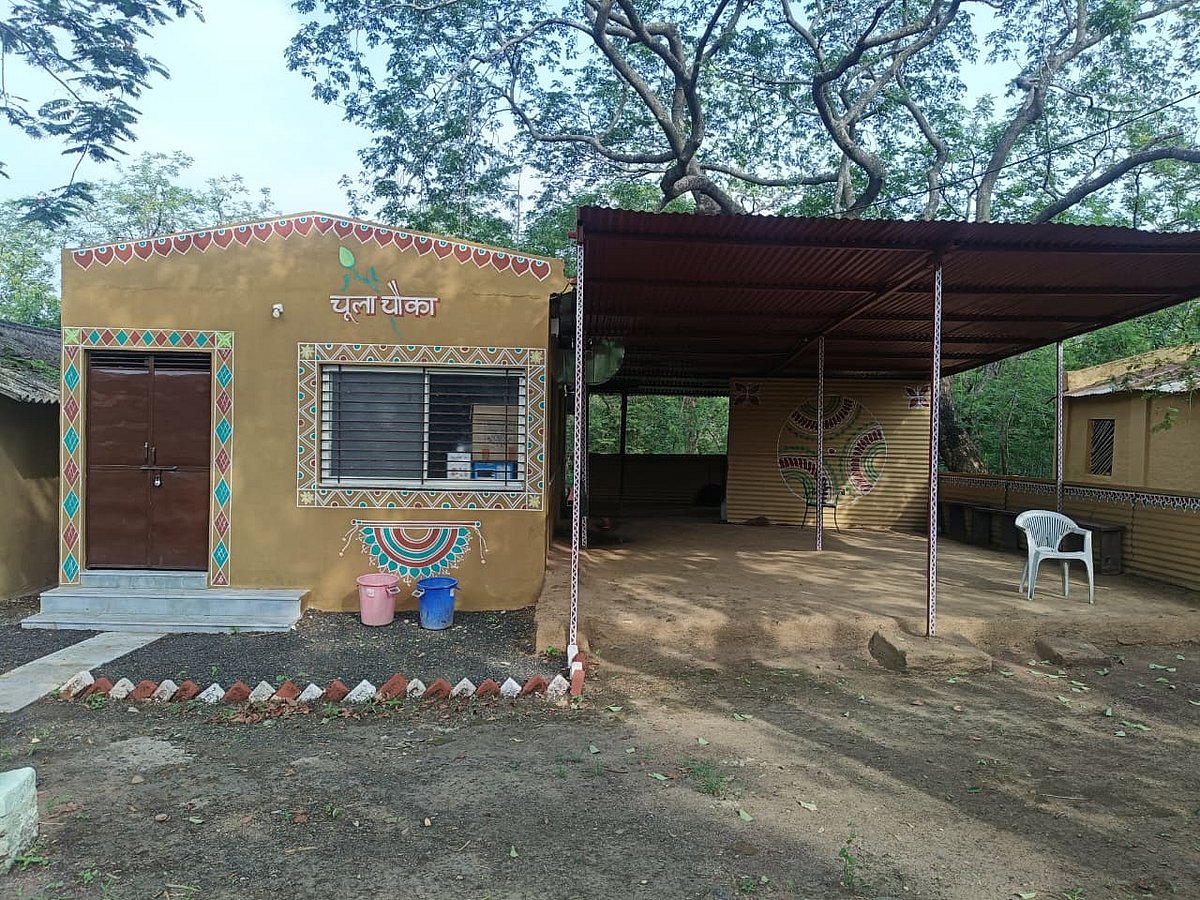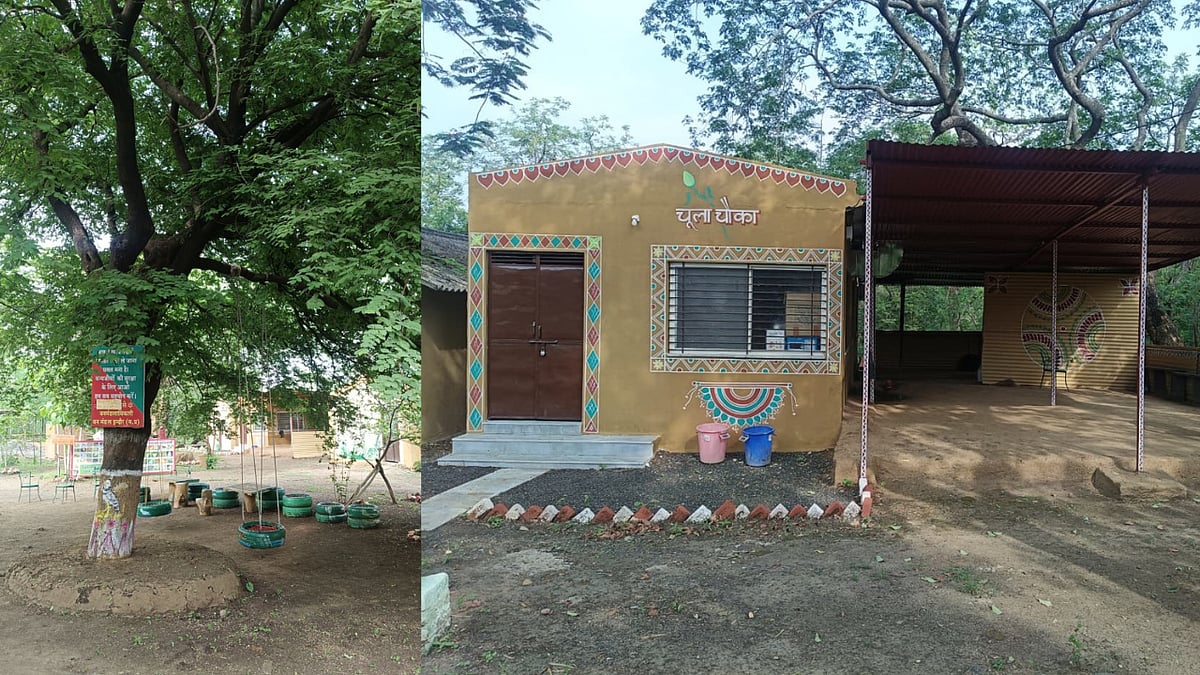Indore (Madhya Pradesh): Imagine stepping into a classroom where the walls are made of trees, the desks are boulders, and the lessons come from the land itself. Picture hiking through diverse ecosystems, spending nights in eco-friendly tents, and savouring traditional Malwa meals at Chulha-Chauki, cooked over an open flame.
This immersive experience is becoming a reality at Umrikheda Eco Park, a 185-hectare sanctuary on the southern edge of Indore, where the forest transforms into a living, breathing classroom.
Soon to be the first-ever hub for environmental education, Umrikheda will offer schoolchildren an opportunity to step out of traditional classrooms and into the wild.
“Our goal is simple,” said Pradeep Mishra, divisional forest officer for Indore, “We want to make learning about the environment a tangible, hands-on experience. Children who walk through forests, observe wetlands, and spend time under the stars are more likely to become the stewards of the planet we desperately need.”

Bridge to distinct nature trails through wetlands, forests, and hills |
Immersive nature trails
Umrikheda offers three distinct nature trails through wetlands, forests, and hills, each teaching students about biodiversity, ecosystems, and conservation. A mud house built in the traditional tribal style offers a glimpse into rural life, while overnight stays in eco-friendly tents allow students to experience nature from day to night.
“We teach more than facts here. We teach connection,” Mishra explains. “Spending the night in the forest brings nature’s lessons to life.”


A traditional mud house gives students a glimpse into rural life and how communities have coexisted with nature for centuries. |
Interactive learning zones: Where education meets nature
* Wetland learning area: At the park’s natural pond, students will learn how wetlands regulate water, support biodiversity, and fight climate change. “Urban wetlands are disappearing rapidly, and it’s critical that children understand their role in sustaining life,” Mishra noted.
* Hill and watershed conservation zone: Students will witness how simple conservation methods—contour trenches and check dams—can prevent erosion and recharge groundwater. “By observing how rain impacts these features, students gain a real-world understanding of conservation,” Mishra added.
* Demonstration nursery: Here, students will learn about rare, endangered, and threatened species and propagation techniques to restore native plant life.
* Miyawaki forest plot: This small but dense micro-forest will demonstrate how rapidly native species can grow. “It’s a powerful example of how we can restore ecosystems in small spaces,” Mishra added.
* Climate change experience centre: Interactive exhibits will teach students about carbon cycles, climate trends, and resilience. “Climate change can feel abstract to children, but here they can see how it affects weather, wildlife, and the environment,” Mishra said.

Chulha-Chauki – the sustainable eco restaurant |
Chulha-Chauki: Where tradition meets sustainability
At Chulha-Chauki, an eco-restaurant with traditional features, students can enjoy Malwa cuisine cooked over an open flame.
“Cooking over a chulha connects children to traditional ways of life and shows them that sustainability can be simple, natural, and effective,” Mishra explained.
Community involvement: Strengthening conservation efforts
By involving local communities in the park’s management and conservation efforts, Umrikheda ensures that the surrounding region benefits from both educational and ecotourism opportunities.









